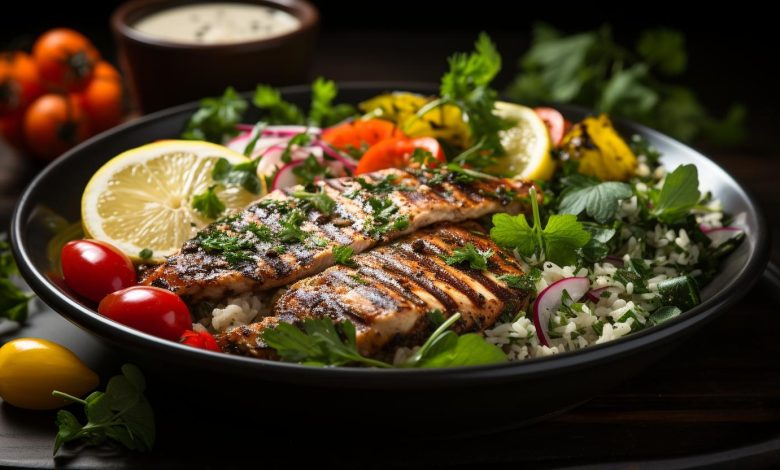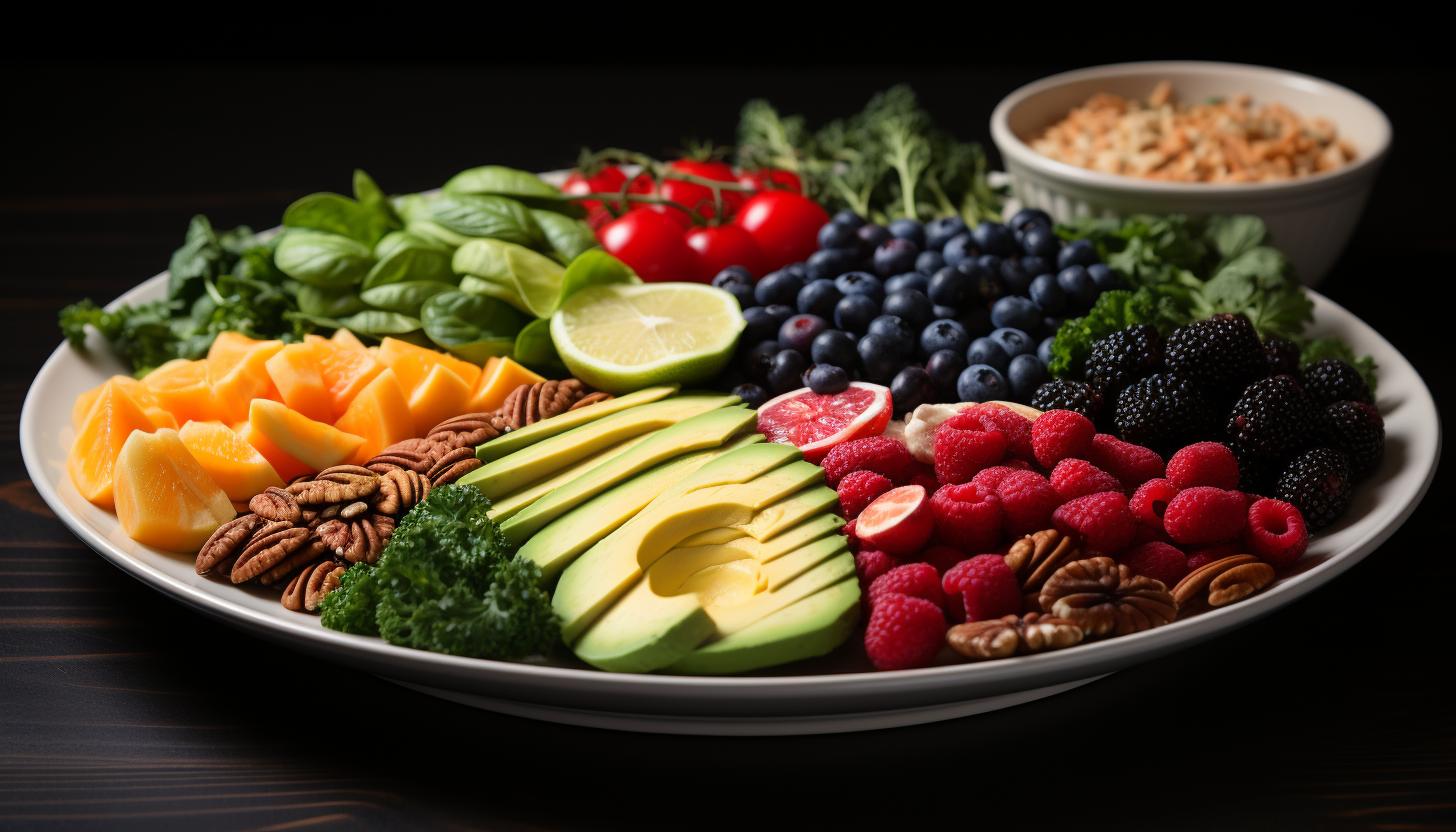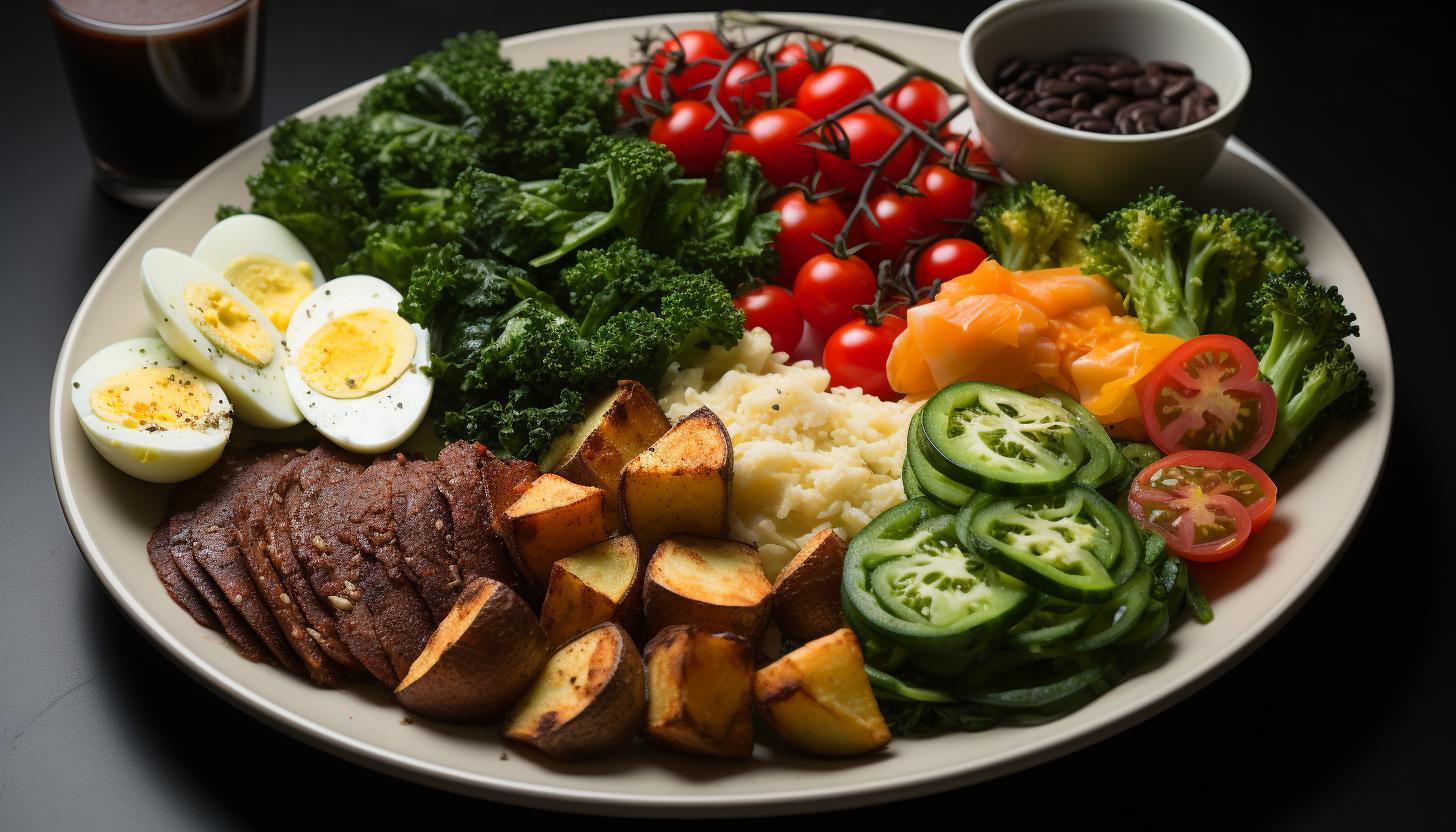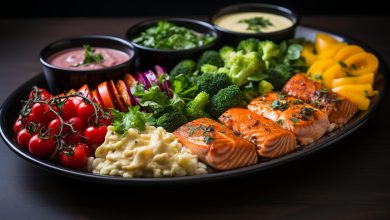Maintaining Muscle Mass While Losing Weight: Nutrition Tips for Runners

Are you ready to shed those extra pounds while still keeping your hard-earned muscle? Look no further! In this article, we’ll provide you with practical nutrition tips tailored specifically for runners like yourself.
Discover the importance of protein intake, learn how to balance macronutrients for optimal performance, and find out the best timing for meals and snacks to maintain muscle mass.
Plus, we’ll show you how incorporating strength training and staying hydrated can enhance your muscle recovery and overall performance.
Get ready to achieve your weight loss goals without sacrificing your muscles!
The Importance of Protein Intake

Protein intake is crucial for maintaining muscle mass while losing weight. As a runner, it’s important to understand the significance of protein in your diet.
Protein is made up of amino acids, which are the building blocks of muscles. When you engage in intense physical activity like running, your muscles undergo stress and breakdown. Protein helps repair and rebuild these damaged muscle tissues.
To meet your protein requirements, incorporate a variety of protein sources into your meals and snacks. Lean meats such as chicken breast, turkey, and fish are excellent choices as they are low in fat and high in protein. Eggs, dairy products like Greek yogurt and cottage cheese, as well as plant-based options like lentils, beans, tofu, and quinoa also provide good amounts of protein.
The amount of protein you need depends on factors such as body weight, training intensity, and goals. Generally speaking, athletes should aim for approximately 0.5 to 0.8 grams of protein per pound of body weight per day. This means that if you weigh 150 pounds (68 kilograms), you would need about 75 to 120 grams of protein daily.
Balancing Macronutrients for Optimal Performance

To achieve peak performance, it’s important to balance the macronutrients in your diet. Macronutrients refer to carbohydrates, proteins, and fats, and each plays a crucial role in fueling your workouts and optimizing your performance. By understanding how to properly balance these macronutrients, you can enhance your pre-workout nutrition strategies and ultimately improve your overall athletic performance.
Here is a table that breaks down the recommended macronutrient ratios for optimal performance:
| Macronutrient | Percentage of Daily Caloric Intake |
|---|---|
| Carbohydrates | 45-65% |
| Proteins | 10-35% |
| Fats | 20-35% |
When it comes to fueling strategies before a workout, carbohydrates should be the main focus. They provide quick energy for high-intensity exercise and help replenish glycogen stores in the muscles. Good sources of carbohydrates include whole grains, fruits, vegetables, and legumes.
Proteins are essential for muscle repair and growth. Aim to consume lean protein sources such as chicken breast, fish, tofu or beans throughout the day to support muscle recovery.
Fats play a crucial role in hormone production and nutrient absorption. Focus on consuming healthy fats like avocados, nuts/seeds, olive oil or fatty fish.
Timing Your Meals and Snacks for Muscle Maintenance

When it comes to optimizing your athletic performance, timing your meals and snacks appropriately can play a crucial role. This is especially important for runners looking to maintain muscle mass while losing weight.
By focusing on meal frequency and pre-workout nutrition, you can ensure that your body has the fuel it needs to perform at its best.
Here are three key tips for timing your meals and snacks effectively:
1. Eat a balanced meal 2-3 hours before your workout: This will give your body enough time to digest and absorb the nutrients, providing you with sustained energy throughout your run. Aim for a mix of carbohydrates, protein, and healthy fats to fuel both endurance and muscle maintenance.
2. Have a small snack 30 minutes to an hour before exercise: If you’re running in the morning or have limited time between meals, having a quick snack can provide an immediate source of energy. Opt for easily digestible carbohydrates such as a banana or a granola bar.
3. Refuel within 30 minutes after finishing your run: Consuming carbohydrates and protein shortly after exercise helps replenish glycogen stores and supports muscle recovery. A post-run smoothie with fruit, yogurt, and protein powder can be an excellent option.
Incorporating Strength Training Into Your Routine

Incorporating strength training into your routine can help improve overall athletic performance and support muscle development. Strength training offers numerous benefits for runners, including increased muscular strength and power, improved running economy, reduced risk of injury, and enhanced endurance.
To reap the full benefits of strength training, it is important to follow effective workout routines. One such routine is a combination of compound exercises and isolated movements that target key muscle groups used in running. Compound exercises like squats, deadlifts, and lunges engage multiple muscles simultaneously, promoting functional strength. Isolated movements such as calf raises and hamstring curls focus on specific muscles that contribute to running mechanics.
When designing your strength training program, consider incorporating both traditional weightlifting exercises (using dumbbells or barbells) as well as bodyweight exercises (such as push-ups or planks). This variety helps build overall strength while improving stability and balance.
Remember to start with lighter weights and gradually increase the load as you become comfortable with proper form. Aim for two to three sessions per week, allowing at least 48 hours of rest between each session to allow for adequate recovery.
By incorporating these effective workout routines into your routine, you will experience improved performance on the road or trail.
Now let’s explore hydration strategies for muscle recovery and performance.
Hydration Strategies for Muscle Recovery and Performance

Proper hydration is essential for optimal muscle recovery and performance. When you exercise, especially during intense workouts or long runs, your body loses water and electrolytes through sweat. It’s important to replenish these fluids and minerals to support your muscles and prevent dehydration.
Here are three strategies for effective hydration:
1. Drink before, during, and after your workout: Start hydrating at least 2 hours before exercise by drinking 16-20 ounces of water or a sports drink. During your workout, aim to consume 7-10 ounces of fluid every 10-20 minutes. Afterward, continue hydrating to replace any lost fluids.
2. Focus on electrolyte replenishment: Electrolytes like sodium, potassium, and magnesium help maintain proper muscle function and fluid balance in the body. Include electrolyte-rich foods like bananas, coconut water, or leafy greens in your pre- or post-workout meals/snacks.
3. Consider sports drinks for longer sessions: If you’re exercising for more than an hour or in hot weather conditions where you’ll be sweating excessively, consider using a sports drink that contains carbohydrates to provide energy along with electrolytes for better hydration.
Remember that individual hydration needs may vary based on factors such as body size, intensity of exercise, and environmental conditions. Listen to your body’s thirst cues and adjust accordingly to ensure proper hydration both before and after workouts for optimal muscle recovery and performance.
Conclusion
In conclusion, maintaining muscle mass while losing weight is crucial for runners to optimize their performance. By focusing on protein intake, balancing macronutrients, timing meals and snacks strategically, incorporating strength training, and staying hydrated, runners can ensure they are taking the necessary steps to preserve their muscles.
Interestingly, studies have shown that consuming 0.6-0.9 grams of protein per pound of body weight per day can help in preventing muscle loss during weight loss efforts (McKinley et al., 2016).
So remember to fuel your body right and keep those muscles strong for your next run!






